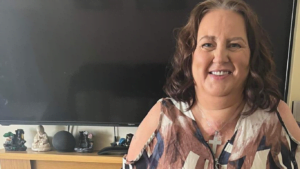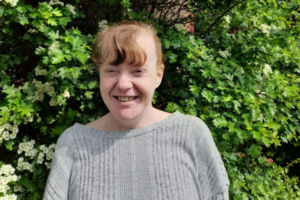
Fee Brown
Communications Manager
Steve's approach to supporting young people
It’s an upsetting truth that mental health services are not serving young people well. Pick up a newspaper and the sobering stats are there to back it up: 7000[i] young people in Scotland falling through the gaps each year; and a heartbreaking 10 year high for the number of deaths by suicide in the 15-24 age group[ii]. Surely a clarion call for creative thinking now or risk stoking the fire of mental ill health into adulthood.
But one of the great things about the third sector is its desire to challenge the status quo. It devises creative ways – often times collaboratively – to make our society a better place. Maybe this creativity and innovation is borne out of the need to box clever within tight budgets. I believe it’s something more fundamental. People, compassion and the hunger for social justice are at the heart of any third sector organisation.
So with all of this in mind, I wanted to find out more about the work we do with 16-25 year olds and had the pleasure of visiting our Angus service to talk to one team member there.
“It’s definitely a challenging and varied job. I love it. I have absolutely no script when I’m working with young people, and although I know we have useful tools that can help, I’ll always try and support the person to figure out what’s right for them. The approach is completely person centred and I see my relationship with young people as a collaboration where we work together.”
These are the words of Steve Hardie. He and our recovery teams are evidence of our compassionate and creative approach to mental health support. It’s an approach that puts the wellbeing of young people front and centre. At its heart? The expectation of recovery inherently guides our highly skilled teams who take a holistic approach to that person’s wellbeing. We support young people to live fulfilled and happy lives with the right support at the right time.
The ‘right support’ mantra chimes with Steve’s belief in early engagement, “it’s super important to work with young people early on because that’s when a lot of issues around mental health can start.” He’s right. Around 50% of mental health problems experienced by young people are evident by the age of 14. Steve reckons that “if we can educate young people earlier, and give them the tools to promote and manage their own wellbeing, it’s more likely to have a lasting and positive impact on their lives and help reduce the number of adults who experience long and enduring mental health conditions.”
But Steve doesn’t see his role in a young person’s life as a teacher. He’s there to give that person “the opportunity to be themselves without fear of judgement or being told what they should and shouldn’t do. We work together to find the best way forward for them, at a pace that they can handle. Whether it’s just being listened to or practical support around connecting them to the community, our young people are empowered to achieve for themselves.”
He’s motivated by “the opportunity to have an impact on young people’s lives, even if it’s just planting seeds or having important conversations around mental health.”
…the opportunity to be themselves without fear of judgement
He’s brilliantly passionate about his work and he’s great at relating to young people. Perhaps that’s because like many in our teams Steve has lived experience. “My own mental ill health growing up impacted on my ability to do well at school and beyond. Severe anxiety meant I couldn’t leave the house. It made the seemingly ordinary things, like having a job, impossible. I really saw no way out. Eventually I reached out for help and everything turned around for me. I wanted to work with young people and provide support, similar to what I’d received. Coming to Penumbra was a great opportunity as it felt like I was coming full circle in working with young people experiencing the same issues I faced all those years ago. Being able to support young people who are experiencing similar issues to what I experienced is really rewarding.”
And he insightfully observes that the medical model isn’t necessarily right for every young person when he says that, “the clinical approach, although it obviously has its place, can sometimes be a barrier to some young people and put them off. I try to focus on guided discovery where the person is very much in the driving seat”.
This style is favoured by one young person who says, “after years of trying to find some help for my anxiety and depression, I finally got referred to Penumbra. I’m so thankful that someone is listening.”
There’s no doubt that the CAMHS is the right option for many, but for others, having early access to support like ours is perhaps what they need.
Steve’s enthusiasm for his work is uplifting. It’s obvious he cares deeply about making a difference to the lives of the young people he works with. And he’s representative of colleagues across our recovery teams who possess the ability to connect with people in a meaningful way. Perhaps that’s because 26% of our colleagues are employed in peer roles and share a connection with people through lived experience, or perhaps it’s because we embrace and celebrate individuality. Either way, the Penumbra approach offers hope and an opportunity to challenge the status quo.
[i] ISD, CAMHS Waiting Times, June 2017
[ii] ISD, Suicide Statistics for Scotland
Steve Hardie is the Assistant Service Manager for our Angus NOVA service.





